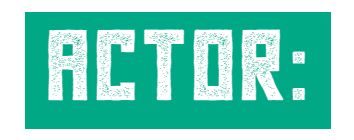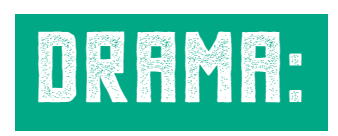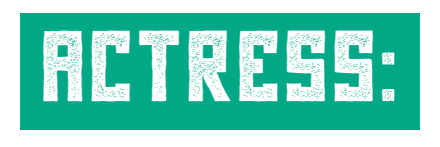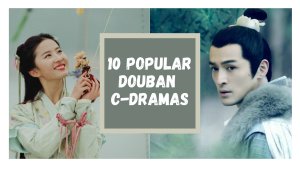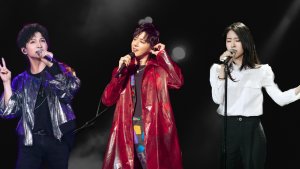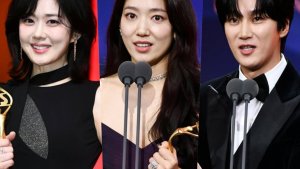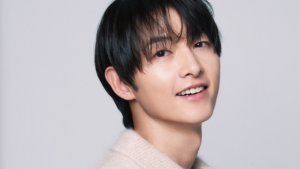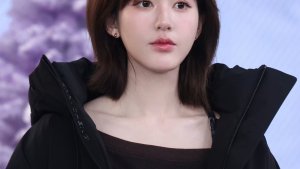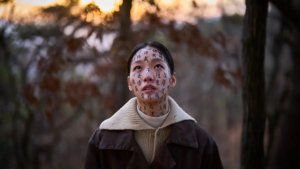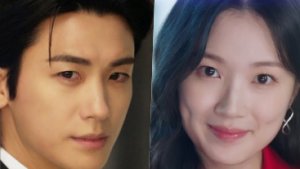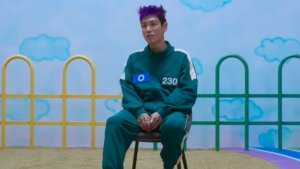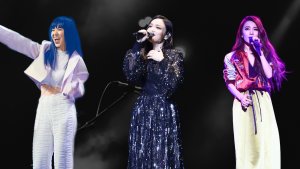 OST Singers You Should Know: Taiwanese Edition
OST Singers You Should Know: Taiwanese Edition

Spoiler notice: You can read most of the article spoiler-free until the last section, "Antiheroes in Asian Dramaland." That section will contain spoilers from selected dramas to help explain the antihero trap. While the character's backstory and specific scenes may be discussed, there will be no major plot point spoilers.
We are starting to see a trend in television shows where antihero characteristics are more predominant over heroic traits. It's quite popular and well-received amongst fellow MDL viewers. If you search up articles from MDL's database, there have been many antihero articles throughout the years (linked below). This lead to the question as to why viewers may feel so attracted to these characters and I started my research on what makes an antihero appealing. I want to note that this is an opinionated piece on what I believe quantifies as a good set-up for the antihero trap. These findings and my opinions do not certify what makes a good antihero for you. I would love to hear your thoughts on this after you've read the article.
 ✼ ҉ ✼ ҉ ✼ ҉ ✼ 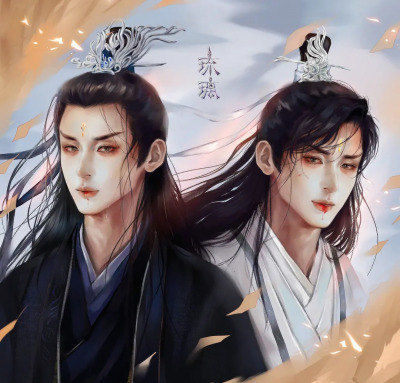 | Have you ever watched a drama and become appalled by the lack of hero characteristics in a protagonist? No, not Yong from Iljimae, who lacks skills and then eventually develops them. Nor is it Si Feng from Love and Redemption, who pretends to be a bad guy. I'm talking about that antihero who you can't help but love because they're not as morally good as a typical hero should be. You're conflicted between categorizing them as the good guy vs. the bad guy. One minute they're heroic, and then they're doing things that can probably put them in jail. Or you want to shake them through the screen of your device - or maybe scream at them. That conflicted feeling in your head that even though it's wrong, your heart loves the darkness in that character. Whichever one it was, I'm sorry, but you've fallen into the trap of the antihero! To understand the antihero trap, we'll look through research on antiheroes, why our brain finds them so compelling, and then break down some antiheroes in Asian dramas. |

To understand an antihero, you need to understand the difference between a hero and a villain. A villain is a character with evil motives and bad intentions. As an antagonist is usually a force that stands against our hero, the villain will usually be the main antagonist to help drive the conflict for the plot. So what makes them different from a typical antihero? It's their approach to achieving their goals and the intention of their actions. Their actions are immoral and usually cruel, contrasting, or hindering the hero from completing their goal. A hero is typically the protagonist of the show. If you search for the definition of a hero, you will see several results. These vary from "a person admired for achievements and noble qualities" to "a mythological or legendary figure" (Merriam-Webster). That is because there are five types of heroes. We have our classical heroes that "possess an attribute or quality that distinguishes them from ordinary people" (Ray). Then there are antiheroes, one of the most popular types of heroes depicted on screen these days. | 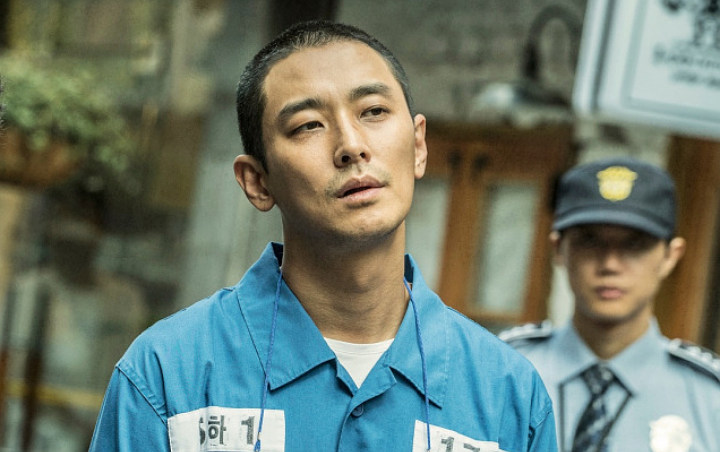 Dark Figure of Crime: Villain Dark Figure of Crime: Villain Rebel: Hero |
| The sliding scale of antiheroes, broken down below, contains character traits that distinguish them from the rest of our heroes. It is to be noted that the antihero can shift on this scale based on their character growth or can have traits that are pulled from different sections of the scale. | |
 | The classical antihero is a character who has flaws in their character traits, such as being cowardly, having baggage, to lacking in skills compared to a typical hero. The classical antihero story is about overcoming their weakness, defeating the enemy, and becoming a true hero at the end of the story. |
 | The Disney antihero is still considered a good character. They tend to be more sarcastic and realistic by putting logic before honor, but these characters will not do morally ambiguous things. The Disney antihero typically becomes a hero after confronting their demons or finding someone they want to protect. |
 | The pragmatic antihero has good intentions and still has moral standards; however, their means of doing "good" is questionable. The actions that they take to help do good may not be the nicest method they can take. The pragmatic antihero looks at the bigger picture and is willing to make sacrifices or use lethal force to reach the greater goal. |
 | The unscrupulous hero is one where they're the baddest of the bunch while still being considered good. This type of antihero has a deeper story to tell. They may be more cynical because of their past. Those experiences could have affected their personalities, making them cold or unforgiving to the world. They will not mind using more violent methods and probably won't care who gets engulfed in the eye of their storm as long as the job gets done. A variation of the unscrupulous hero may be somewhat nicer. They can come off as a bit more neutral in where they stand, lines they won't cross, or have loved ones they want to protect. |
 | The nominal hero is a hero in name only. They may fight on the good side, but their intentions are not. They are just a bit better than the villains, which allows them to hold the name of a "hero." The nominal hero character tends to stay within this arc instead of allowing character growth. |

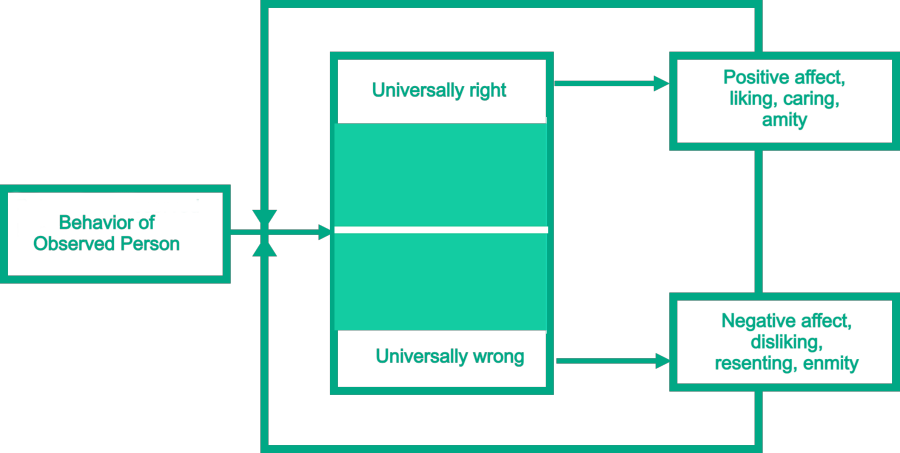 Why do we enjoy watching an antihero storyline compared to a hero? This article on antiheroes and psychology explains two possible reasons why we enjoy watching antiheroes. The first is through affective disposition theory: our enjoyment of a drama/film increases when characters we like or dislike experience the outcomes that we expect them to. With characters we dislike, like our villains, we don't want them to succeed. However, with our protagonist or favorite characters, we want a positive result for their goals. So if our protagonist is an antihero and we like their character and want them to do well, we will still like them despite their flaws. Why do we enjoy watching an antihero storyline compared to a hero? This article on antiheroes and psychology explains two possible reasons why we enjoy watching antiheroes. The first is through affective disposition theory: our enjoyment of a drama/film increases when characters we like or dislike experience the outcomes that we expect them to. With characters we dislike, like our villains, we don't want them to succeed. However, with our protagonist or favorite characters, we want a positive result for their goals. So if our protagonist is an antihero and we like their character and want them to do well, we will still like them despite their flaws. | |
| The second is through catharsis, an emotional release based on the psychoanalytic theory that "is linked to a need to relieve unconscious conflicts" due to an overwhelming amount of pent-up emotions (Cherry). To relieve that emotional energy to feel positive afterward, one may use different activities, such as exercise, listening to music, or watching a movie. Sometimes we use entertainment as a source as a "get away from reality," and if we end up enjoying the show's conclusion, we have successfully released our pent-up emotions. What does that mean? We end up liking our antiheroes more due to the positive response our minds gave us. | 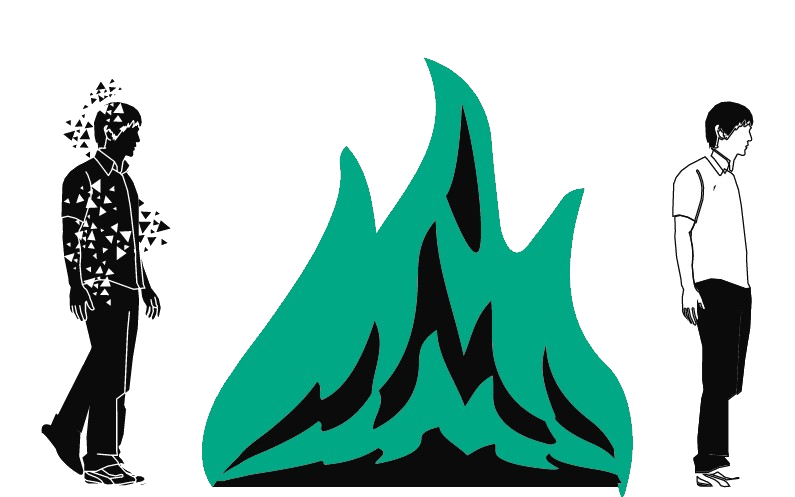 |
| So, what does falling for the antihero mean? My conclusion is that you have compassion and empathy. This falls along the lines of Tsay-Vogel and Krakowiak's study on moral disengagement and how we justify the antihero's actions. While they aren't the everyday hero that we can relate to, I think it's the satisfaction of seeing such flawed characters being able to fight their demons. These characters come from different walks of life, and they aren't perfect. They probably have an ugly past or characteristics that aren't "hero quality," but their resilience to be the best person they can be is admirable. Seeing these characteristics, we're able to relate to them more. We might reflect on these qualities and realize that we all have flaws, but we can become strong too. And because we all want to be the heroes in our own story, we might have a little bit of antihero in us. Or you enjoy a good storyline with a gritty protagonist. I guess whichever one it is, you've been captivated by the antihero. | |

I've concluded that an antihero needs four characteristics to become a good and memorable antihero.
- A gripping backstory to why they picked the antihero route. This story will tell us the reason how they have come to develop their characteristics. It will line their goals for the story and make us be able to empathize with their character. Without a solid back story, we can't see the reasoning behind their goals and empathize with our antihero and why they choose the antihero path.
- Give them noble intentions that differentiate them from being the antagonist or villain of the story. Even if they are the antihero, they are still fighting on the good side. Their goals and intentions should still be for the greater good. With noble intentions, it gives us hope that because they're fighting for the good side, maybe they will get a happy ending that's justified for their story.
- Possess flaws that make them non-heroic and claim the title of an antihero. These flaws will be unique to their character and their story. Flaws will vary and may be darker as they scale towards the nominal hero. It's what will make them feel raw and realistic.
- Allow some redeeming factors to your antihero to make them likable. These factors don't have to be becoming a classical hero as it could just be having a snarky personality that brings comedy to the story. Because these redeeming factors can vary from character traits to actions taken along the story, it again gives us the hope that they're not too bad after all.
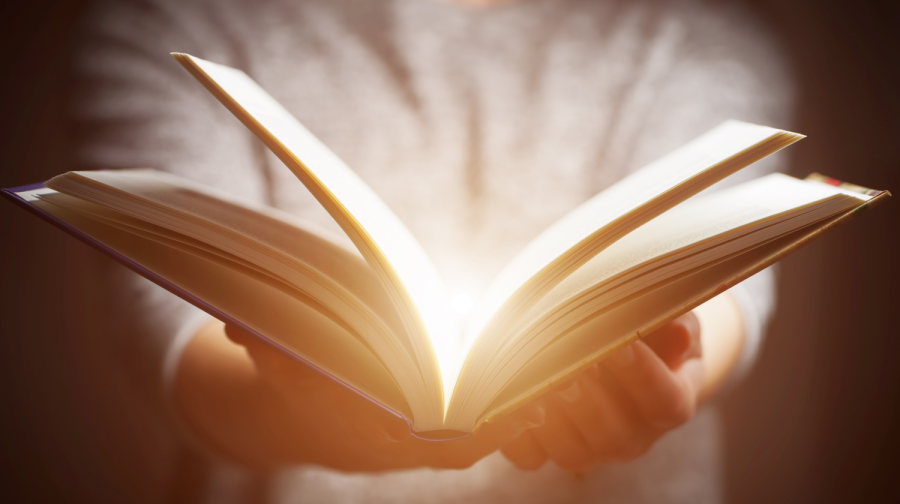
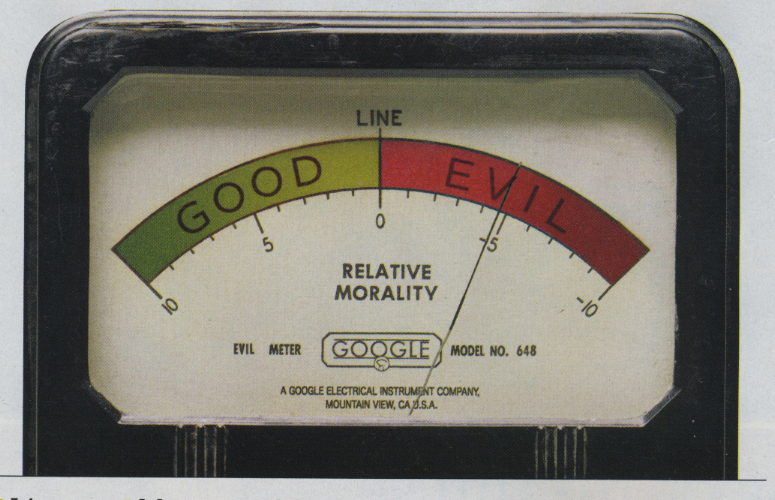
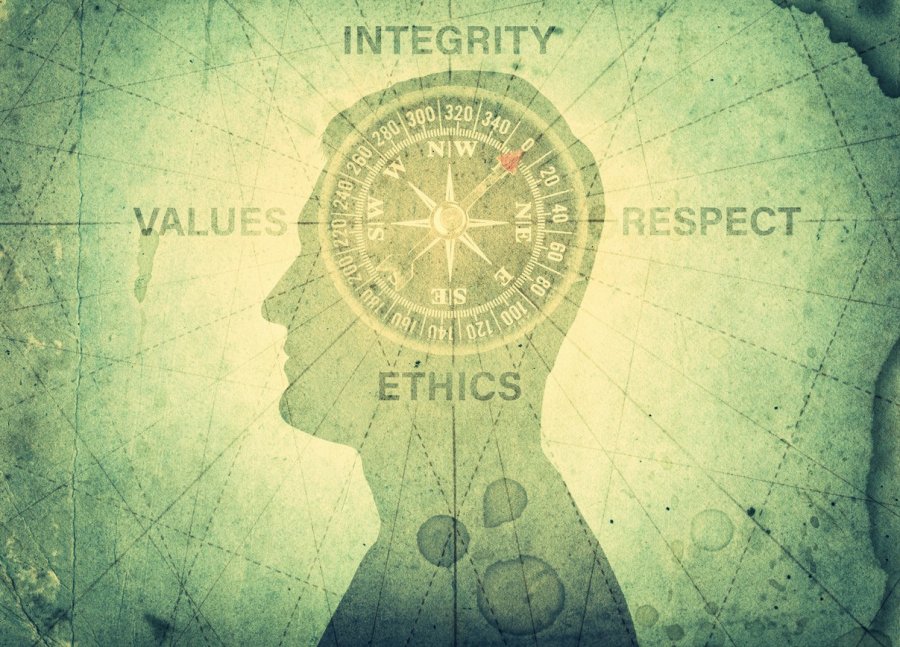
 The research that I provided beforehand is mainly based on western characters and television shows. From my perspective, there's a stark contrast between western and Asian antiheroes. The main difference about Asian antiheroes is that they're more inclined to their social values due to their collectivist culture (Burnett). Asian drama scriptwriters like to add a redemption aspect to their characters. This usually happens through love, sacrificing themselves, or doing the "right" thing for the greater good. The following are my attempts to break down Asian drama antiheroes as the main lead of the show. I'll try to be as vague as I can with major spoilers so you can still enjoy the show if you haven't seen it.
The research that I provided beforehand is mainly based on western characters and television shows. From my perspective, there's a stark contrast between western and Asian antiheroes. The main difference about Asian antiheroes is that they're more inclined to their social values due to their collectivist culture (Burnett). Asian drama scriptwriters like to add a redemption aspect to their characters. This usually happens through love, sacrificing themselves, or doing the "right" thing for the greater good. The following are my attempts to break down Asian drama antiheroes as the main lead of the show. I'll try to be as vague as I can with major spoilers so you can still enjoy the show if you haven't seen it.
Classical ↔ Disney | ||
|
| |
Gripping backstory (2/5) ✓ Ning Que's family was unjustly killed when he was young, and as the witness and survivor, he vowed to seek revenge for his family. General Ma saved Ning Que and raised him as a soldier on the border, establishing his combat skills. Losing his family and being a soldier affects how he views the world as unjust. He thinks the system is broken and the rich only care for their own wellbeing. This upbringing helps him become strong, resilient, and always on his feet to one day meet his enemies and get revenge. | 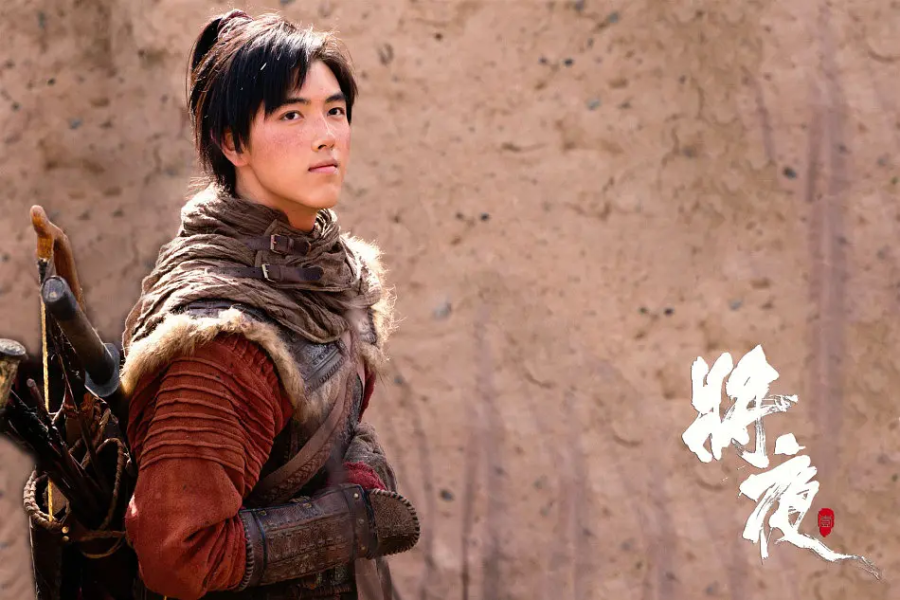 | |
Noble Intentions: ✓ helps the weak, fights for the greater good Flaws ✓selfish, coward, arrogant Redeeming Factor(s) ✓ perseverance | ||
| Right from the beginning, we saw Ning Que's characteristics of a Disney antihero. Ning Que accepted the mission to protect Li Yu to reach the capital with the intention of his own personal gains. The group wanted to rest in the valley on their way through it; however, Ning Que knew it was not a good spot to set camp with his expertise. He advised them to continue, but they ignored him. In anger, Ning Que approached Sang Sang, his maid, and told her that they did not risk everything to survive to die so easily. With those words, he took Sang Sang and left the group that he was tasked to protect, to fend for their own lives. |  "Sang Sang, you must remember this. We worked hard and risked our lives to survive in this world. Since we worked so hard to survive, we cannot die so easily." "Sang Sang, you must remember this. We worked hard and risked our lives to survive in this world. Since we worked so hard to survive, we cannot die so easily." | |
| I thought he was joking when he uttered those words and left with Sang Sang. My thoughts were, "haha. Good joke. He's going to pretend to walk away and then turn back." But nope, Ning Que is a selfish man whose sole purpose is to survive, and he could care less about a mission. At that moment, I realized Ever Night isn't going to be a typical hero's journey storyline with a typical hero protagonist. Despite his flaws, Ning Que's noble intentions and perseverance, even when he seemed to be at a loss, were quite notable. Ning Que continues to redeem himself throughout the show, but his character stayed true to the Disney antihero that at times veered into the classical antihero lane. | ||
Pragmatic ↔ Disney | |
|
|
| Gripping backstory (5/5)✓Raised by a psychopathic father that groomed him to be different and take over the family business. Do Hyun Soo was mentally abused through his childhood to become the best successor. As a student, he was bullied by his classmates, and through therapy that was supposed to help cope with the loss of his mom, the psychologist never took the time to understand his situation. His life experiences thus far were how Do Hyun Soo came to develop Antisocial Personality Disorder, shaping him into who he is and how he sees the world. | 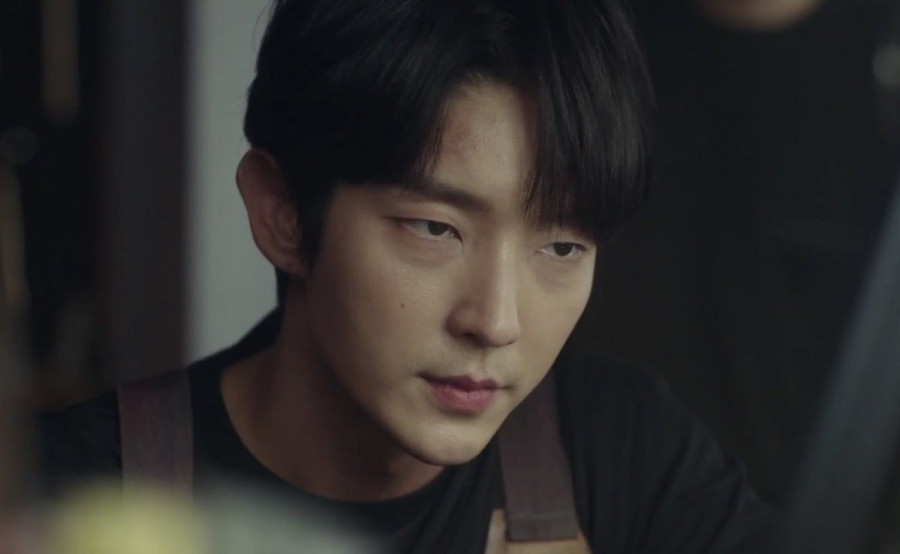 |
Noble Intentions: ✓ won't intentionally hurt people, helps the police Flaws ✓ selfish desires, lying, manipulative Redeeming Factor(s) ✓ wants to protect his family | |
| We see Do Hyun Soo start as a pragmatic antihero for most of the drama. Oftentimes, viewers will be conflicted about his intentions because though he's not harming anyone innocent, we don't know what he's thinking. He's willing to sacrifice everything and make decisions where they can come off as morally wrong to ensure he can have what he wants. As more of Do Hyun Soo's mysterious past unravels, we start to see him more as a Disney antihero. | |
| The scene when the two siblings sit in an empty building to catch up really gives us a good example of our complex feelings towards this pragmatic antihero and the importance of his well-written backstory. Do Hae Su is our antihero's sister, someone he trusts and one where he can truly be himself with. In that building, Hae Su asked Do Hyun Soo if he loves Cha Ji Won, and his response was, "No, I never once felt that way." Because we know he is honest with his sister, that one sentence made us doubt Do Hyun Soo. Within that short timeframe of his answer, we are made to think that Do Hyun Soo is selfish and is only manipulating their relationship to work in his favor. It wasn't until he continued with, "I don't know what that feels like," did that backstory kick in to make us realize that this man has been through deep trauma. His trauma has affected the way he perceives people and emotions. So now, we're able to empathize with Do Hyun Soo and justify his answer. He is saying that he doesn't love her because he doesn't understand what love is. Don't get me wrong; this scene still broke my heart as much as it broke Cha Ji Won's resolve as a woman who has been deeply in love with her husband for the past 14 years. Does that mean that it clears him of his flaws? Definitely not, but it gives us a better sense of how his backstory affects who he is and why he is an antihero. This is why a good backstory matters! | |
Pragmatic ↔ Unscrupulous | |
|
|
| Gripping backstory (3/5) ✓ Ning Yi, Prince of Chu, is the 6th prince of the Tiansheng Empire. During the fall of the Dachen Empire, Ning Yi, and his 9th brother, Ning Chuan was sent to annihilate the last of the Da Chen spies. Ning Chuan took credit for annihilating the last prince of the Da Chen empire and became the crown prince. Meanwhile, Ning Yi was injured, and when he woke up, his mother was executed under charges of witchcraft. He was left with the love and kindness from his third brother, Ning Qiao. Yet, his third brother was taken away from him due to being framed by the crown prince for treason. Ning Yi himself became imprisoned in Zong Zheng Temple for eight years for a crime, he didn't commit. All the injustice brought onto Ning Yi gave him the drive to silently plot his revenge amongst those who have wronged him and his loved ones during his imprisonment. | 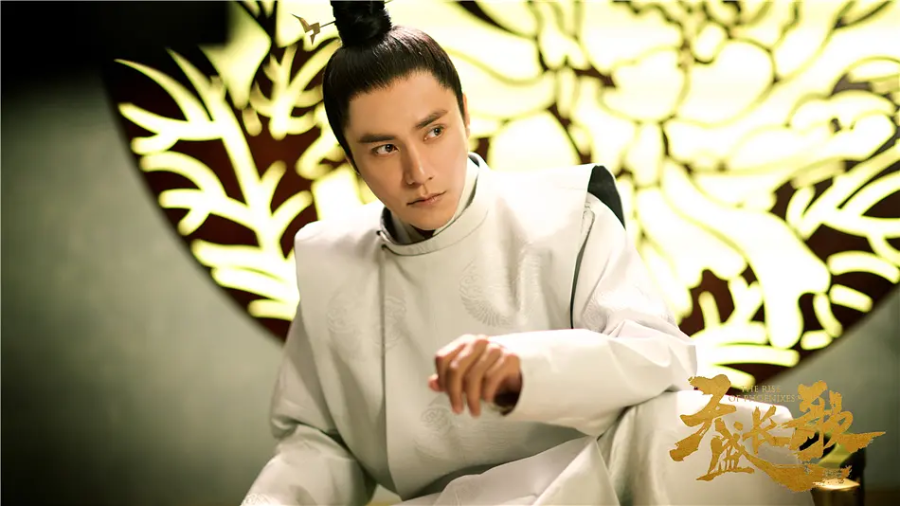 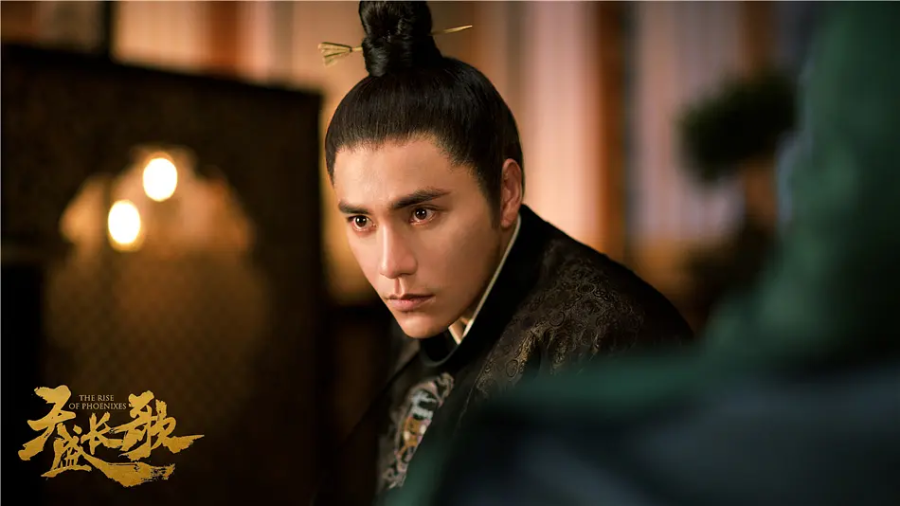 |
| Noble Intentions: ✓ eradicating corrupt officials Flaws ✓ lead by his emotions Redeeming Factor(s) ✓ his carefree attitude | |
| As we dive deeper into the story and see the mistreatment that his mother received as a small tribe concubine and his father's lack of affection for his children, we start to understand why Ning Yi is so driven by his emotions. He lacks parental love and warmth in his life, leading him to feel so strongly for the injustice of his loved ones. Because he saw that those with political power could do evil and get away with evil, that is why Ning Yi feels like he must take it upon himself to get rid of all those bad political eggs. | 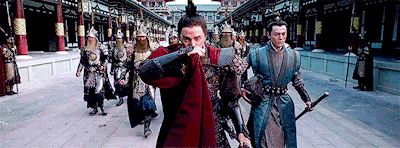 "Eliminate all evil. Don't harm any more innocent lives. " |
| Ning Yi is a nicer version of the unscrupulous hero, as he doesn't care who gets hurt in the process of his revenge. He doesn't care for relationships, especially if they're the ones who were involved in the schemes in getting rid of his loved ones. He would manipulate people and situations into getting what he wants. We see in the beginning that he was willing to use Feng Zi Wei as a tool for his revenge. Ning Yi knows that Feng Zi Wei doesn't want to harm innocent people, so he told her that she has to eliminate all evil so that innocent lives will not be harmed anymore. Ning Yi is better than his enemies in that he still has remorse for those who are innocent. Ning Yi's methods become less cruel and he starts to lean more towards a pragmatic antihero as his ambition rises. | |
Unscrupulous ↔ Nominal | |
|
|
| Gripping backstory (4/5) ✓ Ashin's village was part of the Jurchen tribe located in northeast China; however, they decided to settle on the northern border in Joseon. They hold no government status and are shunned by both Joseon and Jurchens. In hopes of one day receiving recognition from Joseon, Ashin's father, the village leader, stays loyal to Joseon by sharing their goods and running errands for the Deputy Commander. Ashin's village suffered greatly from the feud of Joseon and the Pajeowi Jurchens, leading to the start of her antihero journey. | 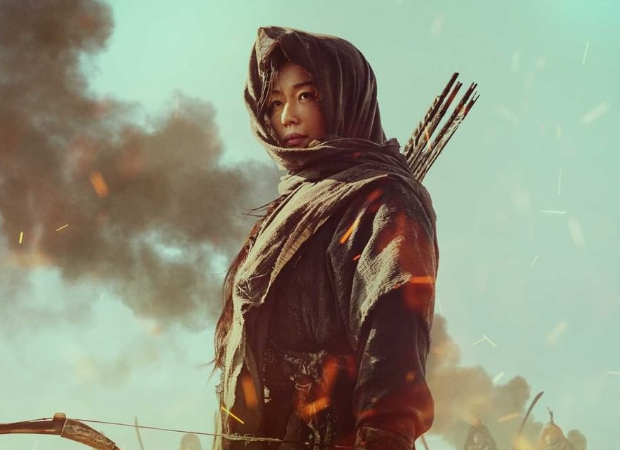 |
Noble Intentions: ✓ getting rid of evil Flaws ✓ selfish actions lack empathy to general society Redeeming Factor(s) ✓ love for her family/village | |
| From the start of her revenge, we see Ashin as an unscrupulous hero as she becomes heartless and cruel to those who have wronged her. Her methods of revenge aren't nice because these people were not just to her in the first place. Since we know how much pain she has suffered throughout the years, we can justify her actions of not relenting to anyone's pleas for help. As the story gets deeper and darker towards the end, we come to realize that Ashin is more than just an unscrupulous hero. While she schemes to expand the demise of the enemy that is still at large, Ashin has tread into the realm of a nominal hero. She now lacks empathy for those who are innocent and has not caused direct harm to her. Ashin does not care who gets caught in her fire. |  "When my job here is done... "When my job here is done......I will join you." |
| Because this is a movie, I won't dive into the specifics to avoid spoilers to the movie and the series. As this movie sets Ashin as the female lead and centers around her story, she is technically an antihero. However, if we were to see her character in future seasons of the Kingdom series, she would steer into the anti-villain zone instead. Ashin is our only female antihero on this list, and I realized that there are not many female-centered antiheroes that have a unique backstory in dramas and movies. Do share some of your favorites female lead antiheroes or even female side characters. | |
If I still have your attention through this lengthy article that got way out of hand upon my initial idea, what are your thoughts on antiheroes and why we like them so much? What is your take on antiheroes in Asian dramaland as we see more and more protagonists being portrayed by a character with antihero characteristics? How would you categorize your favorite antiheroes?
Many antiheroes are still out there. If you feel like these characters weren't gritty enough for an antihero title, which drama character got you caught in their antihero trap?
| Credits: Photos were found on the web. Gifs/fanart/charts are linked to the source. References: All articles used are linked by the author/title name. MDL Antihero Articles: [1] [2] [3] [4] | Edited by: devitto (1st editor), BrightestStar (2nd editor) |

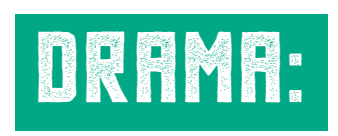
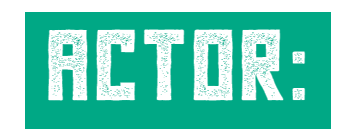
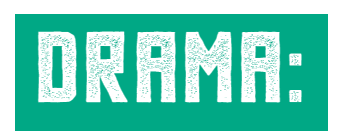 Flower of Evil
Flower of Evil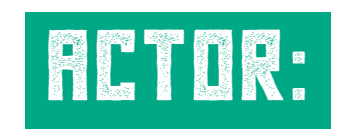

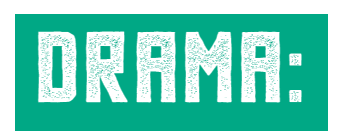 The Rise of Phoenixes
The Rise of Phoenixes